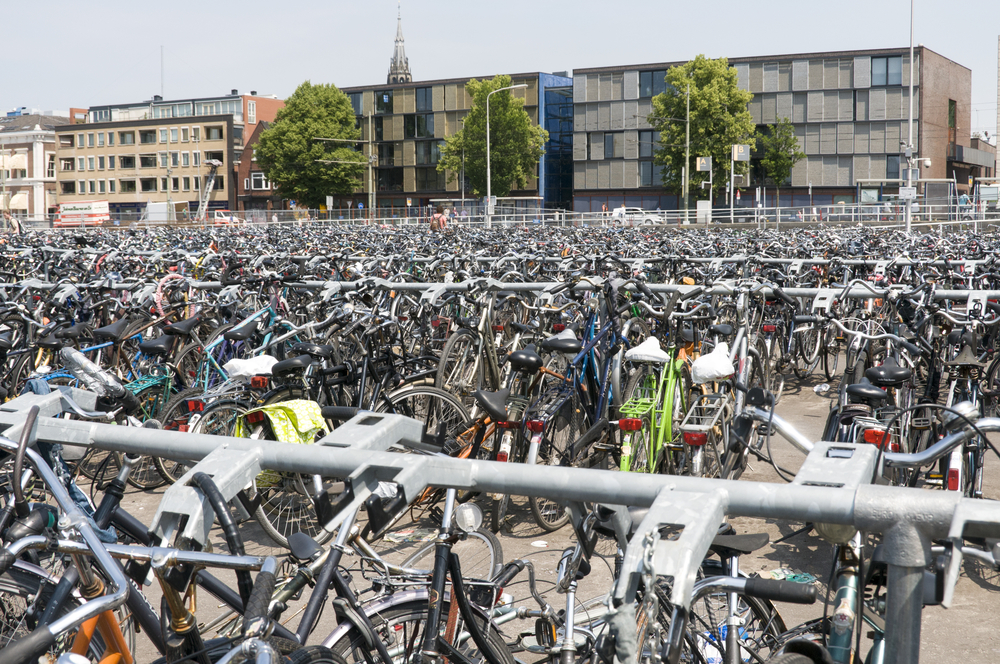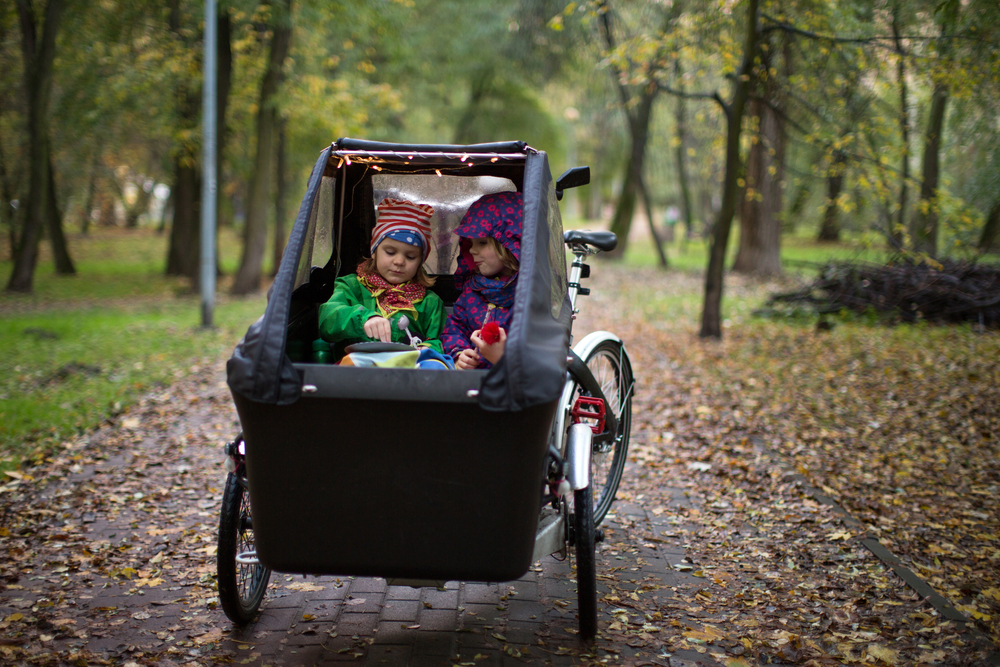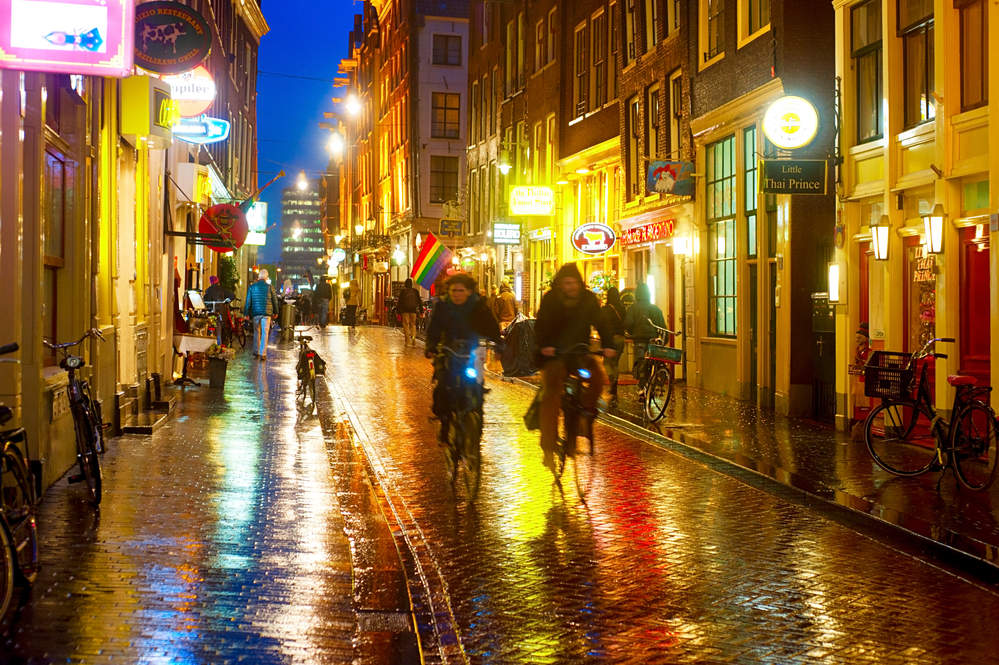I arrived on these shores just over a year ago, and the Dutch lifestyle has already taught me a few things about myself.
So, muse along with me and take this opportunity to reflect on how the lowlands have shaped my life. 🥰
I am decidedly short
At 164 centimetres, I’m admittedly on the shorter side, but I’ve never felt quite as small as I have since moving to the Netherlands.
The average height for a Dutchie is around 183 cm for men and 170 cm for women. From where I’m standing (literally, always looking up), most seem far taller than that.
Dutch men are rated as the tallest and Dutch women as the second tallest in the world. Even the teens are inordinately tall. It leaves me feeling both intimidated and in awe.
READ MORE | Being short in the Netherlands: a short guide for the vertically-challenged
According to some, evolution and environmental factors such as good healthcare, sanitation, and nutrition are stronger drivers for growing lanky humans than pure genetics.
Oh, and eating cheese, lots and lots of cheese. 😝
I do not cycle as well as I thought I did
I cycle — at least I did as a student, and I’ve enjoyed getting muddy on mountain biking trails in New Zealand.
So naturally, I thought the first thing I’d do when we arrived in this tiny country of elegant cycling giants, would be to hop on a bike.
Embarrassingly, it turns out that even five-year-old children cycle better than I do.
My husband surprised me with a bicycle complete with a child seat, called a moedersfiets, for my first birthday in the Netherlands.
Instead of excitement, I was filled with an overwhelming urge to curl up in a fetal position.

I mean, 22 million bicycles for a population of 17 million people, seriously? I felt utterly unqualified to join this cycling way of life.
READ MORE | From omafiets, to mamafiets and bakfiets, Dutch bikes, explained!
I have been that silly person stepping off a tram, standing clueless in the middle of a fietspad (bicycle path), avoiding injury only because of the ninja-like agility of the Dutch cyclist.
I’ve witnessed parents steering a full bakfiets (a bicycle for transporting children), with a newborn strapped to their chest and another child balancing on the back or even precariously standing on the carrier. 🤯
Initially, I started my cycling adventure slowly and overcautiously. Not daring to diagonally cross a road, despite the little green bicycle arrow telling me I am allowed.
READ MORE | 19 things the Dutch did to make cycling easy and attractive
Once, I crossed the road straight over (as I misunderstood this specific green arrow) and was corrected in no uncertain terms by a motorist who nearly ran me over.
I may have recognised the words, “rot op, stommert!” (go away, stupid), and from what I now know about Dutch insults, I think that was rather kind.
I refused to cycle with my son in his seat for at least a week or two, and with good reason, as I’ve fallen four times with him. Every time to be helped up by some aardige (kind) yet amused passerby.

Thank goodness I do not adhere to the inherent Dutch resistance to helmets — at least not when he is concerned.
A year on, and I’ve improved both in skill and confidence. I still can’t cycle with my hands in my pockets, or while carrying an umbrella, a crate of beer, a large painting, a ladder, or a massive suitcase.
I still fail miserably at the elegant mount and dismount I see women do, often in a skirt and heels. I am practising this movement where there is no one to point and laugh, though.
READ MORE | 7 types of cyclists found when biking in the Netherlands
I now love my bicycle, and I much prefer it to any other mode of transport. Even my four-year-old is becoming a Dutchie: cycling without stabilisers to school, with me next to him, of course. 🎒
I’ve come to realise that the average cyclist not only has unequivocal pedalling skills but is also remarkably tolerant.
As long as you obey the cycling etiquette of staying on the righthand side of your lane and using your hand signals, that is.
READ MORE | Dos and don’ts of riding a bicycle in the Netherlands
And do remember that icy patches on the road and those sneaky stoeps (sidewalk) edges are not your friends. Oh, and invest in good rain gear — even those ugly rain trousers!
I speak my mind more freely
When I was first told about the ‘Dutch directness‘ and Dutchies’ fondness for their schedules, I conjured up an image of a nation of rude, abrupt, and closed-off people.
I could not have been more wrong. This so-called directness is not onbeleefdheid (rudeness) in the least, but sincerity. 🙌
I no longer have to read between the lines or wonder about the hidden meaning behind someone’s words. You can take a compliment at face value.

This say-it-like-it-is culture also taught me to be more honest about my feelings and opinions and to get to the point quicker. I find it refreshing.
READ MORE | Dutch directness: 5 questions you’ll get in the Netherlands (and how to answer them)
From my experience, Dutch people are friendly and open — they just like scheduling their lives.
Sure, this habit might hinder spontaneity but it gives more certainty in life, as appointments are most often kept or apologies are given well in advance.
After-school playdates are a different story, as the children organise these during school hours, and as a mere courtesy, inform us as parents when we pick them up from school. Goodbye schedule, hallo spontaneity!
Learning Dutch is not that easy om onder de knie te hebben (to master)
I am a New Zealander by ‘adoption’ but a South African by birth, which means I can also speak Afrikaans. As Afrikaans derives from Dutch, I thought it would be pretty easy for me to learn.
Yet another misconception. 🙃
Although there are some similarities, there are even more differences in grammar, pronunciation, and vocabulary.
My Afrikaans knowledge tends to hamper my learning.
I often think I’m doing well until I see complete confusion in the other person’s eyes, followed by “wat zeg je?” (what are you saying?), and I realise I’ve used Afrikaans, or my pronunciation is not nearly guttural enough.
READ MORE | How to learn Dutch: the ultimate guide (by people who learned!)
The fun thing, however, is that quite a few innocent Dutch words and sayings are a bit rude in Afrikaans.
A poes might be fluffy but indeed not a four-legged, domestic animal, and a doos is not the container you use to pack your belongings.
Both words relate to a much-loved Dutch profanity (apparently not as strong as its English counterpart), which is often used when referring to things like the weather.
Speaking of weather, I could write a book about the weather in the Netherlands and how often people — including me — complain about it.

In fairness, few things beat a beautiful summer’s day in the Netherlands, when you can enjoy borrels (drinks and snacks) with friends until late in the evening (as the sun only sets after 10 PM).
READ MORE | Dutch Quirk #47: Complain about the weather nonstop
Stepping on crunchy leaves on a crisp autumn morning is also magical.
These experiences keep me going as I all-to-often battle the elements of wind, rain, sleet, snow, and then some more rain and wind on my bicycle — all during the same journey. 🥲
What things did you learn after arriving in the Netherlands? Tell us in the comments below!





I learned that it is my true home…Mijn mokum. I had to return to the USA, but, now I have done my penance. I’ve always been petite (nice for “short”). I probably won’t be cycling. I must learn the language. I’m told after a certain age you can’t learn a language. Pffffft (See! I’m speaking it already.) I’ve brought back some of the directness I learned and appreciated. My American friends weren’t too happy. I love my new tribe in Amsterdam and throughout the Netherlands. Wish me luck…I return in May. Thank you for an excellent article. Francesca
Your reply really made me giggle, Francesca, not long now before you are back here…just in time for Spring and maybe even some tulips.
That was fun to read but it not mokum but Mokum with a capital M.
I was born in the Netherlands 85 years ago but have been in the USA 65 years of course I visit when I can and my Dutch is still perfect ok almost hahaha
I’m sure you enjoyed Amsterdam,right? I had to laugh about you becoming direct like directness,yes we Dutchies are direct no bs just tell it like it is🤣,Take care💗💞💕
Hi there,
Compliments for your blog, I really don’t know how you ended up in my feed but I’ve been reading your blogs for a while now.
Really funny to see how foreign people experience our country. Keep on the cycling, try some stroopwafels and ‘nieuwe haring’ and ‘zure haring’ if you can get some.
If you are lucky and if it really get cold, you can try the ice skating on canals too and experience little kids beat you with that.
Keep writing and reviewing, it’s great.
Thank you for your lovely comment, Lars, not sure how I missed it! Love ‘stroopwafels’ and acquiring a taste for ‘haring’; my son loves both and of course, he is already skating like a Dutchie. I’m getting there, with my penguin crutch and all! (only tried to skate at the ‘ijsbaan’ so far, but will most definitely try the frozen canals when we experience that kind of cold).
I’m loving your adventure & experience. Thank you for sharing it with us.
Thank you kindly!
Taking my American wife to my home town Amsterdam for the first time, she said after two days, “Now I get it, you’re not direct and unfiltered at all, you’re just Dutch!”
HAHAHA good one🤣
Love this blog. My husband and I moved here in October 2020 from Canada and can really relate to you. I haven’t braved the cycling yet, but I am loving the culture and soaking it all in. Thank you for sharing your experiences.
This is all absolutely true and made my day reading it. I married a Dutch man and lived in Haarlem for a year before we emigrated to Australia
“…good healthcare…” you’ve been sarcastic, right?
Thank you fir article. Visited a couple of times, think it is an absolute beautiful country and people.
Great story, did you every read the book “undutchable”. Very funny. I lived in Zimbabwe and travelled with my Rhodesian parents in law from Durban to Zimbabwe. They don’t speak Afrikaans but I spoke Dutch and could understand Afrikaans. Jij moet nie spug nie. Live now in warm Portugal but it is cold now, like in Jo-burg.